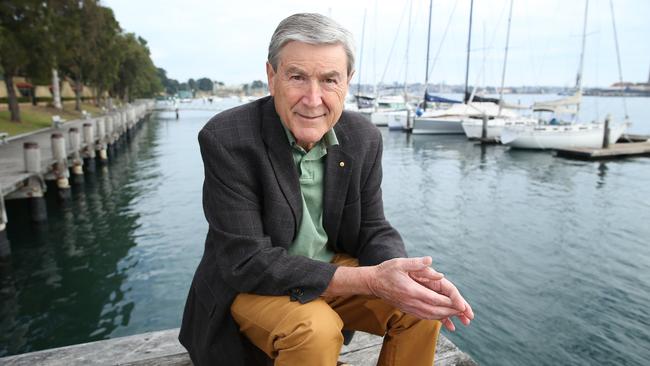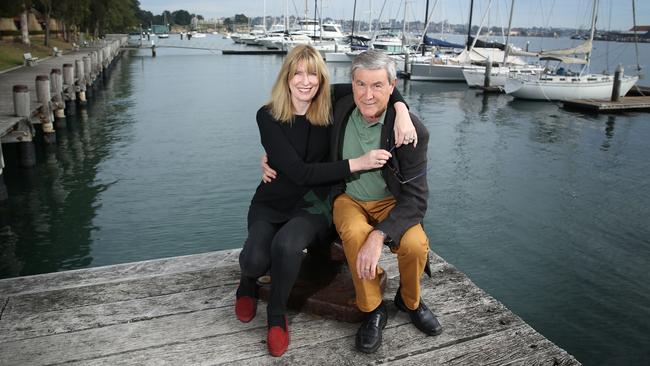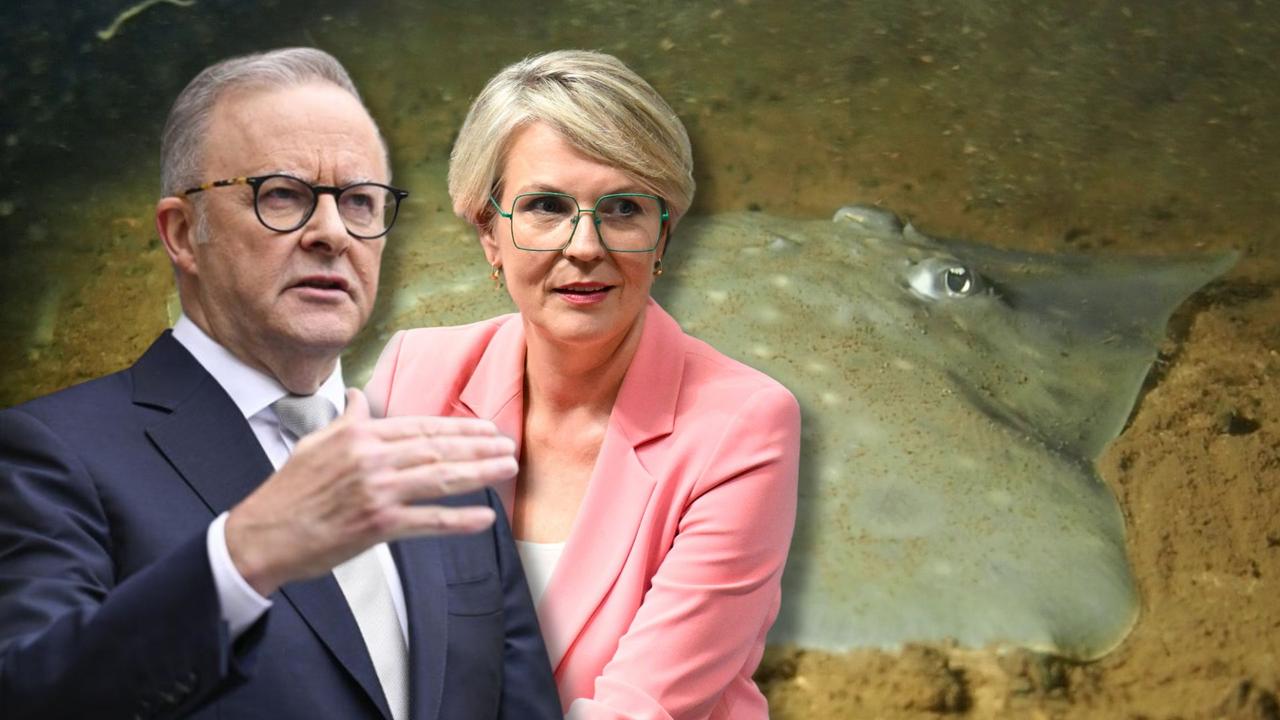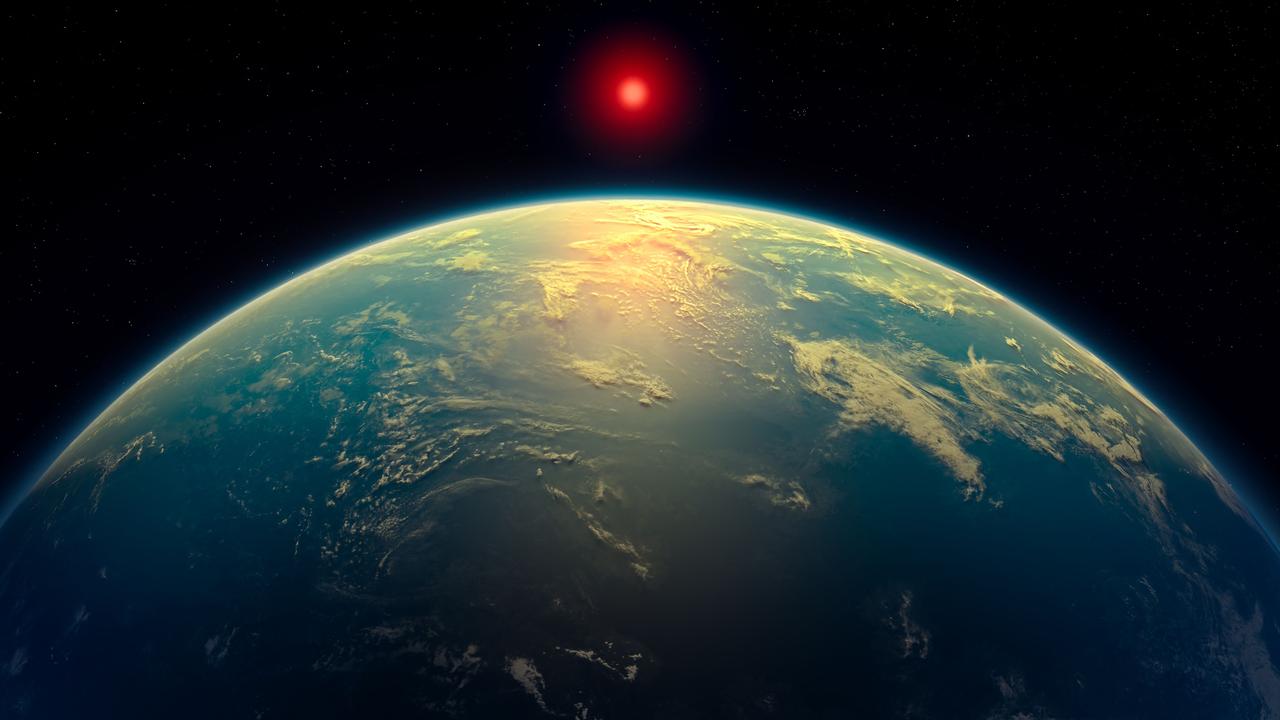Coronavirus: Scientist says we may have to live with pandemic
Scientist Paul Davies says the two key exit strategies, elimination plus a vaccine and herd immunity, were not certain of success.

One of the world’s leading scientists, Paul Davies, says we may have to live forever with COVID-19, putting out “spot fires” when they occur.
Speaking in Sydney, where he has been stranded by the pandemic, the US-based academic, author and broadcaster, said the two key exit strategies from the crisis – elimination plus a vaccine; and herd immunity – were not certain of success.
“The best compromise, which I think we will end up with, is we take measures but it doesn’t go away totally, and you put out spot fires when they occur,” Professor Davies said. “We may have to live with that forever.
“When it gets to the point where the death toll is no worse than from other things we put up with, most obviously flu, then people will start to think it’s just part of the ride.”
Professor Davies is a theoretical physicist and cosmologist – not an epidemiologist – but is taking a keen interest in COVID-19, including launching research to apply network theory to the pandemic.
The author of almost 30 books, the English-born scientist held senior positions at the University of Adelaide and Macquarie University between 1990 and 2006. He and partner Pauline Davies are regular visitors here but a short trip in March was disrupted by the travel ban and they are unsure when they will return to the Arizona State University where he directs the Beyond Centre for Fundamental Concepts in science and Professor Pauline Davies works in the School of Human Communication.

“It boils down to not only safety but sanity,” Professor Davies said. “The pandemic management strategy in the United States is chaotic and Arizona stands out as an example of how not to manage a pandemic. It would be madness to go from NSW which has (a handful of new cases each day) to a place which has thousands per day and hospitals are bursting at the seams.”
Arizona intensive care units were at 90 per cent capacity on Sunday as the state recorded some of the highest level of cases in the US.
The lockdown has given him time to complete his latest book – on cosmology – well ahead of schedule and spend time on his work as a board member at the Big Questions Institute at the University of NSW. He’s been busy too on a project with Sydney, US and European researchers to study the pandemic.
“The plea went out from our university – we have all sorts of clever people, and they are doing all this wonderful stuff, can’t we mobilise this talent in a good cause?” he said. “I took it seriously. At the moment the way people deal with this virus is, you spot it somewhere, you try to zap it, you isolate people. It’s putting out spot fires. I wondered if you took a more global or top-down view whether there might be a more clever strategy.”
The project on “modelling sustainable exit strategies” builds on the centre’s work applying the theory of networks to issues such as cancer gene regulation and the origin of life. The COVID group is working with a California software company, Moogsoft, which analyses glitches in computer networks to make them secure. The COVID project would reverse this, finding vulnerabilities in the pandemic network – such as transport and flight hubs – which could be modified.
“My dream is this top-down idea,” Professor Davies said. “You would redesign the network or re-engineer its architecture to make it easier to control and not just be opportunistic (in attacking outbreaks).
“We should try to outsmart the pandemic and that means co-ordinated action really on a planetary scale, and at the very least on a national scale. But I see no evidence of anybody doing that.”
COVID-19 was a good dress rehearsal for future pandemics: “We have learnt a lot of lessons. It’s such a weird disease. It’s very heterogeneous, it doesn’t look like one disease. It’s like half a dozen diseases.
The pandemic was very destructive but in “the great sweep of human history it is nothing … The worst case scenario is it will be 1 per cent fatality rate and if you compare it with the Black Death or something like that, it was killing the majority of people. That is not to minimise the tragedy … but there could be far, far worse pandemics coming along.”
He said Australians respected scientists and understood modelling was not a precise science and that there would be differences of opinion and error bars in results, but in the US pandemic modellers had become “public enemy number one”.
“In the United States you have this weird anti-science,” he said. “It’s a minority but a very vocal minority who say, Oh, God will protect me.”
Professor Davies has a longstanding interest in viruses and their role in the origins of life – one of the big questions that has preoccupied him throughout his career.
He says his pandemic work is a little different from “the stuff I normally do, which is very precise theoretical physics and cosmology. This is all very hand-wavy stuff. But I have reached the age where I am fortunate I can indulge my interests wherever they lead.”




To join the conversation, please log in. Don't have an account? Register
Join the conversation, you are commenting as Logout